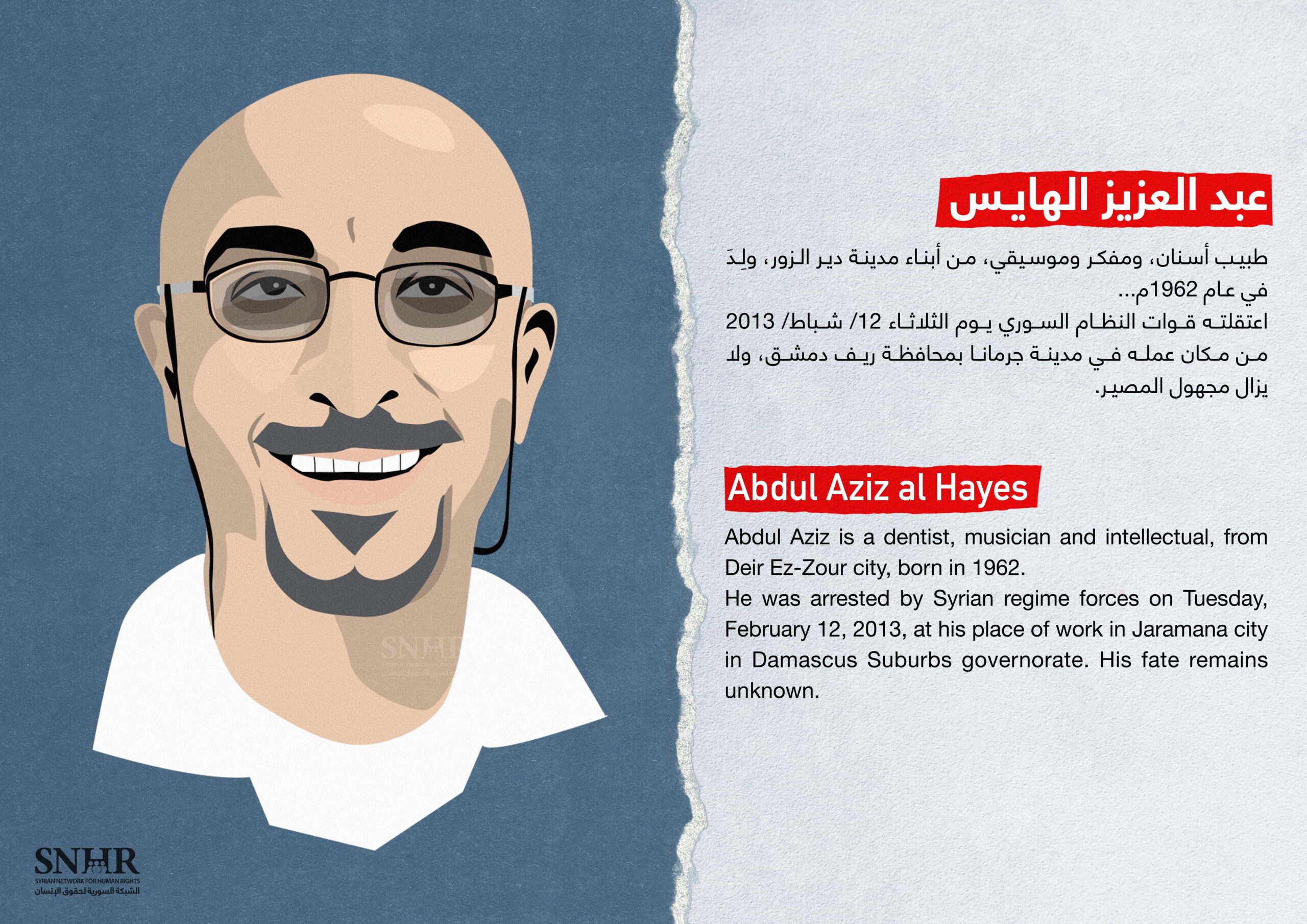
Languages
Available In
Fadel Abdul Ghany is the founder and CEO of the Syrian Network for Human Rights, an independent organization that monitors and documents human rights violations in Syria. On the eleventh anniversary of the beginning of the Syrian crisis, we spoke with him about the ongoing crimes the Syrian government, led by President Bashar Assad, is committing against civilians. He explains how ordinary people are arbitrarily arrested and detained in horrific conditions where they are subjected to torture and other crimes. Their families are left to suffer without knowing the fate of their loved ones. The portraits below share some of the stories of individuals who have been detained.
Eleven years after the start of the crisis in Syria, what does the world need to know about the situation in Syria today ?
The world needs to know that crimes against humanity have been committed in Syria for the past 11 years. These are widespread crimes, and there have been many kinds of violations committed mainly by the Assad regime—which is supposed to protect the Syrian population. But on the contrary, Assad is the one who is committing crimes against humanity. The Syrian population remains unprotected, and there is a total failure from the international community to protect the population from their own ruler and other perpetrators. There is also a lack of interest to end this bloody conflict.
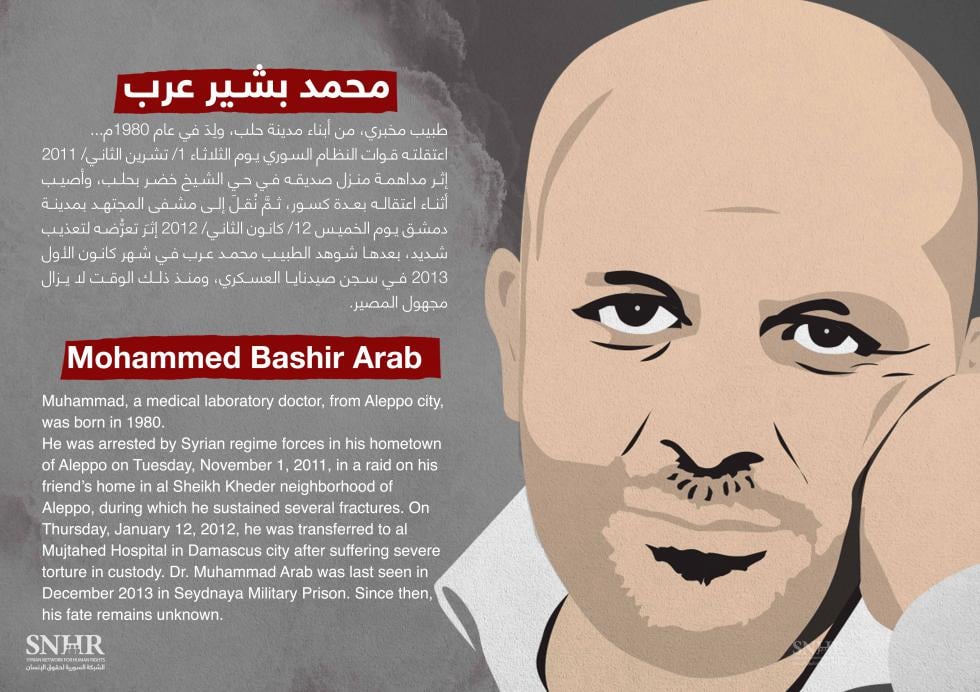
You have been documenting the Assad regime’s practice of arbitrarily detaining civilians, and committing torture and executions of those detained. What do we know about the Syrians who have been disappeared or detained ?
The only thing we know is the continuous suffering of their families. We don’t know the details of the fates of those who have been disappeared or detained. This is why the regime uses this tactic—it is to smash the community. The Syrian community is immensely suffering from this violation. If we compare the population of the disappeared to the total population, this is one of the most serious disasters to happen to the population. There are more than 102,000 detained—87,000 detained by the Assad regime (with the rest detained by other conflict parties), and this includes women and children. Our concern is that some have died due to torture, but we don’t know exactly when or how and that uncertainty makes forced disappearance so harmful even when compared to other crimes.
Is there any way for friends and families to get information about their loved ones who remain in detention centers ?
There is no way to get this information—there is a failure to get the International Committee of the Red Cross or independent investigators into detention centers, and no one knows the fate of those in detention right now.
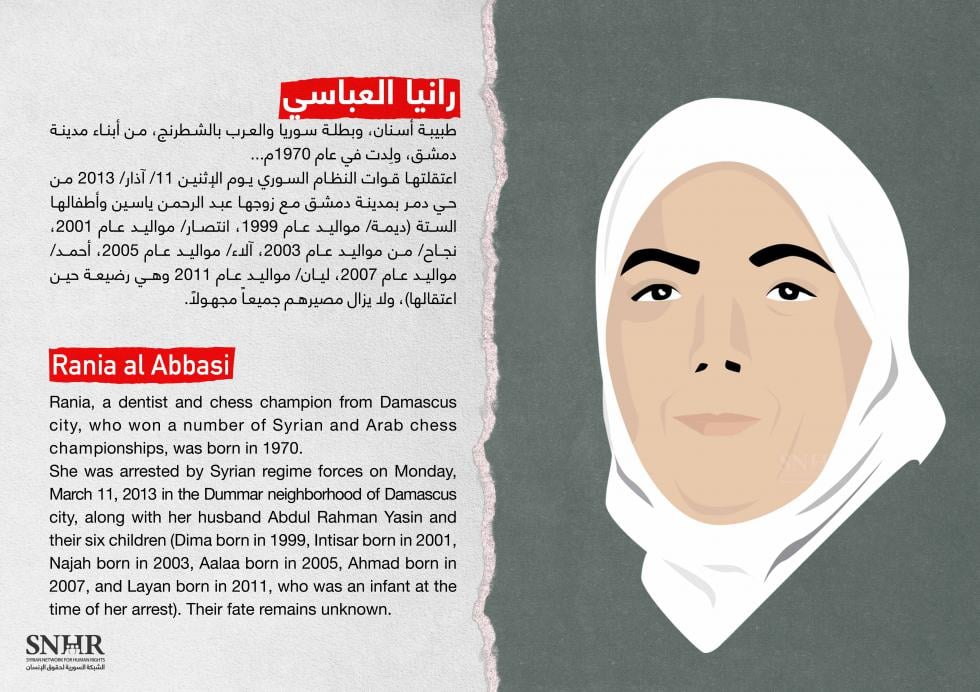
What can people and leaders around the world do to help those in detention ?
The world can do so much more to help. If we look at Ukraine, the West is rising to help Ukrainian civilians. The West didn’t do that for Syrians. There is a double standard here. There are no sanctions at all against Russia because of the crimes they committed in Syria. The sanctions against Assad that started in 2011 were minor and didn’t impact the Assad regime that much—even though in the summer of 2011, Assad committed crimes against humanity, which were documented by the UN High Commissioner for Human Rights and the UN Commission of Inquiry. The West can do far more—they have pressed Assad, but his allies—Iran and Russia—weren’t squeezed so they kept providing Assad with weapons and billions of dollars. We’d like to see more sanctions on Iran for supporting Assad—and further pressure on Russia because of what they have done in Syria. The world can also increase support for the families of the disappeared. They have suffered, and the family breadwinners may have been the individuals who have been disappeared. This forced many women family members to become the breadwinners, with no additional support.
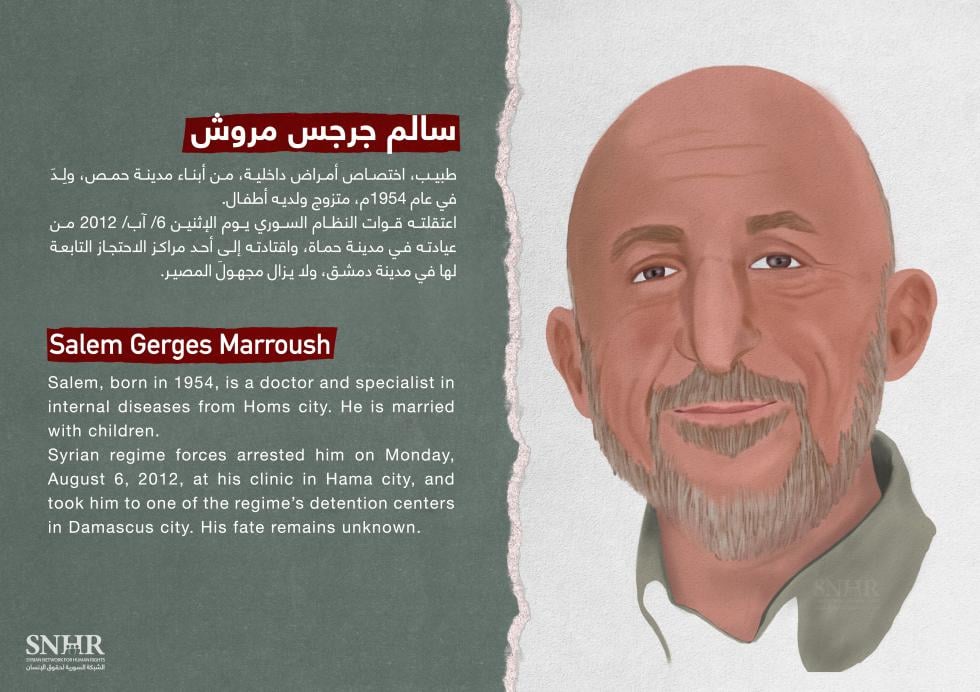
There are reports of a few countries declining asylum claims of Syrians and indicating they should return to Syria. Is Syria a safe place to return to? What dangers do those returning face ?
People returning would face the same violations that people have long been facing in Syria. The Assad regime has committed crimes against so many—but people returning to the country would be viewed as potential enemies. The regime would ask, “Why did he flee?” and they would doubt the loyalty of those returning. Anyone returning would be at risk and would face serious dangers. We do not recommend going back while Assad’s crimes continue. A key concern is arbitrary arrests. There’s no proper procedure for these arrests, no legal review—people don’t know why they’re being arrested or who is doing this. And then they become cut off from the outside world. This is more like kidnapping. Whoever is arrested in Syria would then be subject to further crimes like torture or muder. Some of those are being forcibly conscripted into Assad’s army. We don’t want to forget the land and property violations here either; Assad has established a systematic way to seize and loot properties from people—those who are refugees or who have been internally displaced, or detained. Those who return may face a similar fate.
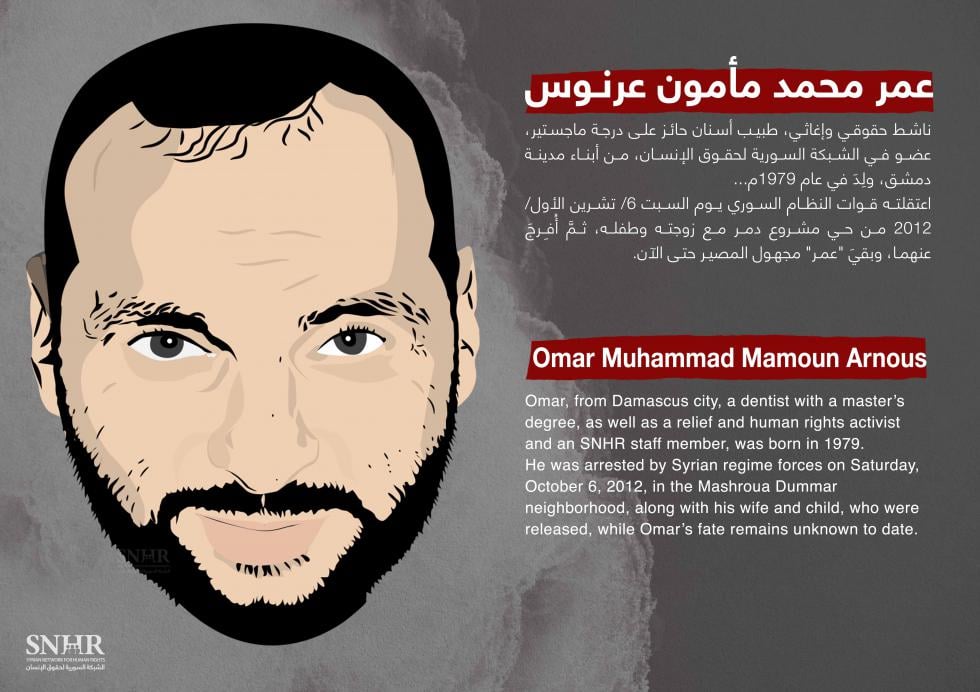
How are current court cases advancing justice for Syrian survivors of mass atrocities? What more should be done to hold perpetrators accountable ?
The court cases to hold perpetrators accountable are a step, but a minor step after 11 years of total impunity, when we consider the gravity of the crimes committed. We don’t want to exaggerate the impact, because those sentences will only target those individuals who are outside Syria. Even if there were to be a case against a higher ranking Assad regime official, they’d be unable to arrest them. On the other hand, it is essential for Syrian victims because the Anwar Raslan verdict (a perpetrator found guilty in a German court of torture, murder, and sexual violence), for example, clearly mentions crimes against humanity. This shows the scale of the crimes and implicates in some way, just by nature of the definition of crimes against humanity, others in the regime. This case, even though it focused on one person’s crimes, condemned the broader regime in a way. That makes it harder for other states who want to reconnect with the Assad regime right now. Accusations of crimes against humanity condemns the broader system in Syria.
The original article was published on the United States Holocaust Memorial Museum website


